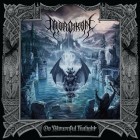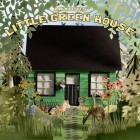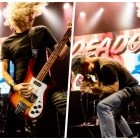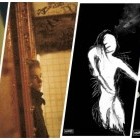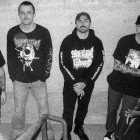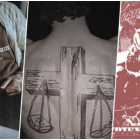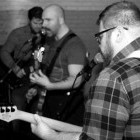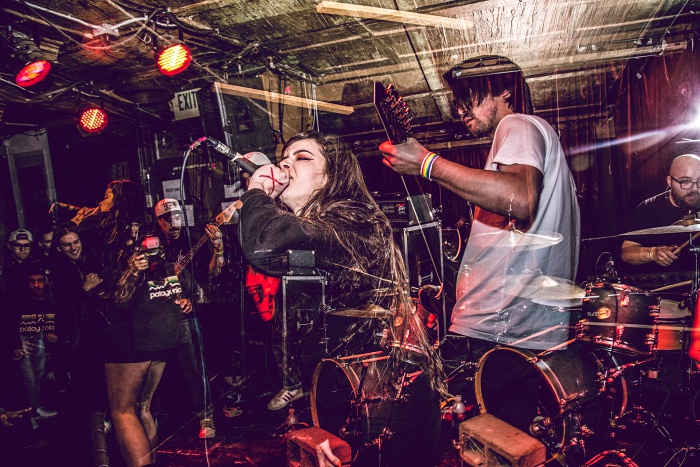
This morning started out like many other mornings over the past several months. While scrolling through social media, I saw an argument on Twitter over female representation in music, and whether or not bands should indicate that they have female members as part of their genre description. I’ve been pretty outspoken on this topic in the past, and it’s honestly baffling to me that in 2019 there is still any debate over why labeling bands with female members is more detrimental than it is helpful, but here we are. I began fervently typing up a tweet with my feelings on the matter, but once I saw I was several hundred characters over the limit, I realized that my input would be better served on a different platform.
I’d like to preface this by saying that while 100% of the female musicians I’ve spoken with on this subject have echoed my sentiment, I do not in any way claim to speak for all women in music or hardcore. I respect that other female musicians may feel differently than I do. My opinion is based entirely on my experiences, and the experience of those around me that I have observed and discussed with them.
The majority of music genres worldwide are male-dominated, and for that reason it is really refreshing to see more and more women and femmes in bands, especially (in my personal opinion) in heavy music. I remember growing up at hardcore shows and how rare it was to see any female musicians on the stage. Over a decade later, there are more women involved in hardcore and metal than ever before, but I’ve also never seen a stronger emphasis placed on highlighting gender and sorting bands with female members into a separate group entirely.
“Female-fronted” is not a fucking genre. It is a description that reduces a band to the gender of its members, and speaks nothing to the actual sound of the music (which is the entire purpose for categorizing music by genre). I have also seen the terms “POC HC” and “trans-fronted,” and I promise you that people of color and transgender musicians don’t want you reducing their music to a single facet of their identity either.
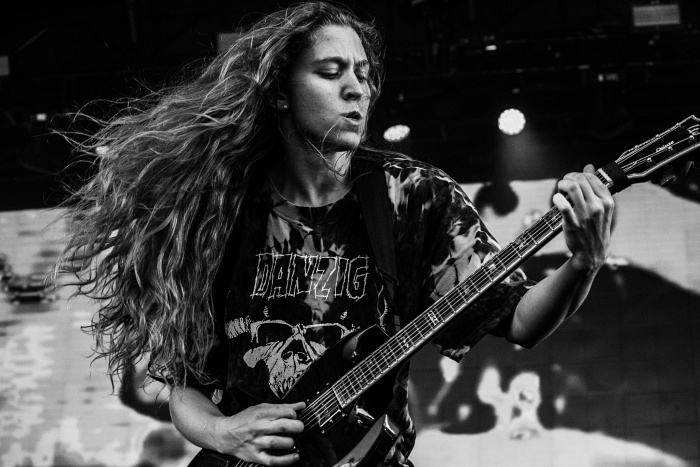
For some reason, a prominent argument as to why “female-fronted” should be a genre is because “girls have high voices.” How do I type out an eye-roll? This is one of the more idiotic takes, as anyone that actually listens to hardcore/punk/metal have heard a great number of high-pitched male vocalists as well as low-pitched females. Last week, I saw someone write that they liked the term “female-fronted” because they wanted to support women in music, and this was a quick way to find bands with female members. This person was also a guy that began arguing with — wait for it — several female musicians that explained why they would prefer not to be labeled in that way. If you are not a musician that identifies as female, and you want to support women in the scene, you should be listening for ways to be supportive and get involved, not projecting your two cents on how you think these women should feel.
As a female musician, after almost every show we’ve played, someone has made an off-handed comment to me about being a woman. Whether it is intended as a compliment or not, it has almost always made me feel uncomfortable and has been focused on how I look on stage rather than how our music sounds. (Quite frankly, you guys are making Brandon jealous that you don’t think he “looks sweet and innocent until the music starts.”) I know that I’m not alone in this experience, and that female vocalists receive unwanted comments about their gender even more than other female musicians.
Another particularly infuriating aspect of this discussion is the accountability that is placed on headlining bands and festivals, rather than the scene, to make sure they are booking bands with female members. Women in music often don’t get the opportunities that their male counterparts do, even in situations where they are more deserving, but the lack of gender diversity in bands is a problem with the scene itself, and not the direct fault of those booking shows. To call upon promoters and fests to give bands with female members preferential treatment for the sole purpose of representation is the exact definition of tokenization, and completely unfair to the women in the scene that have put in the hard work and dedication to deserve their spot. Book a band because they are great and because they have worked hard, not because of the gender of its members. No band wants to hear that they got put on a show or fest because there “weren’t enough girls” otherwise.
Women in music don’t want participation trophies, or recognition that they can sing and play instruments while simultaneously having boobs, they want to be looked at through the same lens as the men they stand beside.
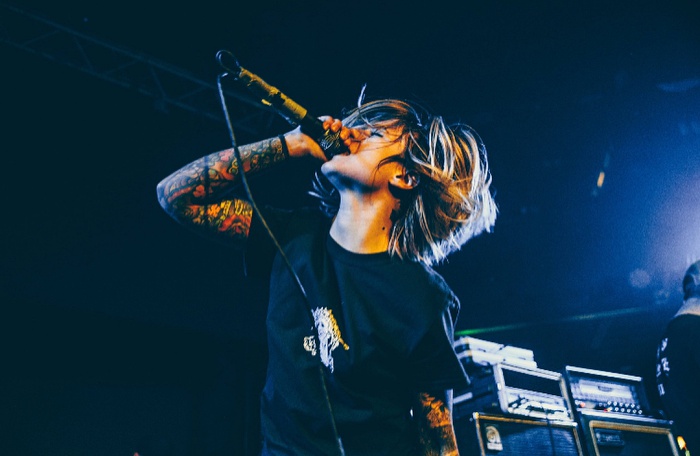
Recognized for their music, skill, and ingenuity. If a band with one or all female members frankly isn’t good, they should be met with the same criticism that an all-male band would receive. Because I don’t know about you, but I never got better at something I was mediocre at by receiving unwarranted praise, and I sure as hell don’t want a pat on the back for doing the same thing any male musician can do.
The more emphasis that is placed on how “strange” or rare it is to see girls on stage, the further we stray from what I feel should be the ultimate goal that one day there are so many women in bands that the discussion of band members’ gender would be a boring and unnecessary topic. I truly wish that I had the answers or a quick solution on how to create an equal balance of men and women in the music industry, but it’s something that will take time to change. In the meantime, if you want to do more for the women in your scene, here are a few great ways:
- If you’re a girl and have always wanted to play music, go start a band
- If you love a band with a female member, book them on a show or suggest them to your local promoters and festivals (but please remember to suggest them because their music rips and not because of their gender identity)
- If you are a promoter or book a festival, look for hardworking, up and coming bands and help them get their foot in the door - do this regardless of gender and because it is the best thing for the scene
- Believe women. Believe in women.
If you disagree with me, I implore you to talk to more women in your scene, and think long and hard before making another dumbass post online speaking for a group you are not a part of. I assure you that your post will not change the collective perspective of an entire scene, and that you are aggravating the hell out of the women you claim to be advocating for.
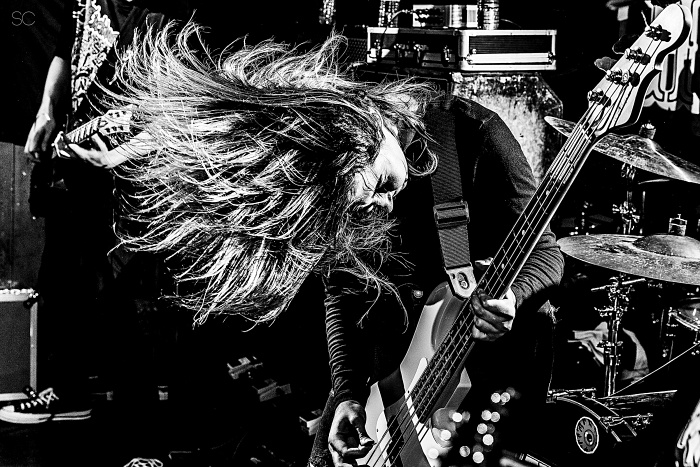
That’s all I’ve got for now, thanks for reading. While you’re here, check out some great new bands/new releases:
- Never Ending Game (Bandcamp)
- Dying Wish (Bandcamp)
- Watchdogs (Bandcamp)
- Hands of God (Bandcamp)
- Facewreck (Bandcamp)
***
If you're shopping for vinyl, CD, and cassette hardcore titles, head to No Echo's partner store, Reverb LP, to see what they have available. Every purchase you make helps No Echo with site costs.
Tagged: no right, year of the knife




